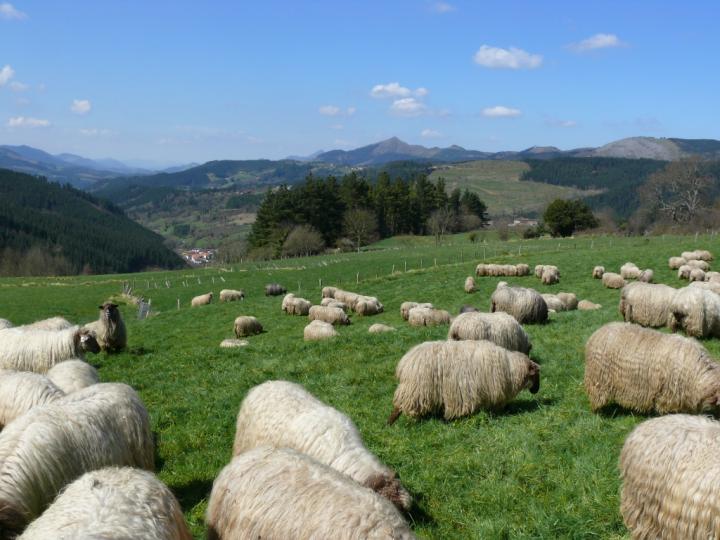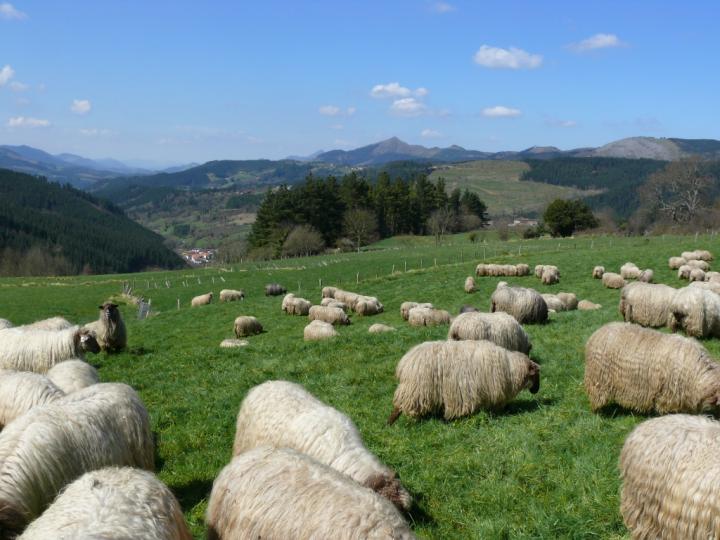
Credit: Neiker-Tecnalia
Regenerative practices improve soil quality and pasture diversity, as the European LIFE Regen Farming project, due to end this year, has been able to show. Under the coordination of the Basque Institute for Agricultural Research and Development NEIKER-Tecnalia, the project has had the participation of the Navarrese Institute of Agri-Food Technologies and Infrastructures and the Urduñederra Rural Development Agency.
The last few decades have seen the gradual abandoning of grazing practices in many livestock systems, while the problems of the sustainability of agricultural and livestock activity have become increasingly clear. Likewise, the growing environmental concern and the need to produce quality food in a sustainable, environmentally-friendly way are shaping the agri-food sector as a key sector for society. The LIFE Regen Farming project, developed under these premises, seeks to determine the viability of regenerative practices as an alternative for the sustainability of livestock farms.
The regenerative management put into practice in the three areas in the study -on NEIKER land in Arkaute, INTIA land in Roncesvalles (Navarre), and in Orduña, on commercial farms with pastures used by beef cattle- was based on direct sowing using perennial and leguminous species, organic fertiliser from the farm itself and grazing schemes adapted to each farm.
It has been possible to demonstrate throughout the project that these pasture management techniques achieve up to 10-15% more grass. The production of 'extra' grass constitutes a saving in the purchase of fodder and highlights the technical and economic effectiveness of regenerative management. Furthermore, the sheep managed under regenerative grazing have the same milk yields and composition, so the flock's production parameters are not altered.
On the other hand, on an environmental level, regenerative practices increase carbon fixation in the pasture (+10%), they cut the carbon footprint per unit of product (-10%), they improve soil fertility (+10% of particulate organic matter) and finally increase the botanical diversity of the meadowland (+3%). All this leads to an increase in both the environmental and economic viability of the farms that implement these practices.
In terms of social impact, livestock farmers were involved in the project right from the start, and their adaptation to the new scientific and technical knowledge was achieved in a straightforward way. The trials in the LIFE Regen Farming project were conducted in three different areas in order to test these regenerative practices in a range of agro-climatic conditions to see the result of the new practices when applied to soils with different characteristics. For this purpose, the working methodology involving Participatory Action Research, in which researchers, rural development technicians and livestock farmers actively participated, was fundamental.
Throughout the project's lifetime a great effort was made to combine scientific knowledge with the fine-tuning of simple evaluation methodologies in the field and oriented towards livestock farmers or technicians. In addition, meetings for dissemination purposes and seminars were held with theory sessions as well as indoor workshops and field practices. All this was carried out within the working framework offered by Participatory Action Research, a key element enabling the livestock farmers to continue with these practices. Complete information on the development of the project plus all the documents generated including illustrative videos of the projects have been posted on the project's website http://www.regenfarming.eu and can be accessed by anyone who is interested.
LIFE+ Regen Farming was selected by the European Commission's LIFE+ programme from among over 1,150 initiatives received for its 2012 call. It had a budget to the tune of 1,338,000 euros, of which 669,000 was funded by the European Union and the partners in the project.
###
Media Contact
Irati Kortabitarte
[email protected]
34-943-363-040
############
Story Source: Materials provided by Scienmag





